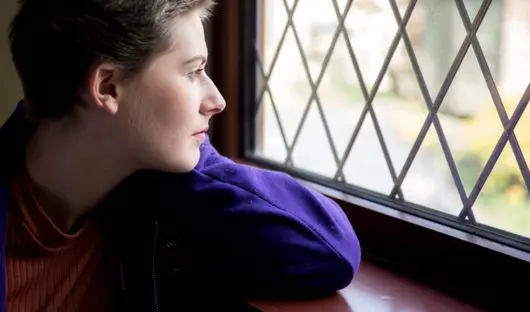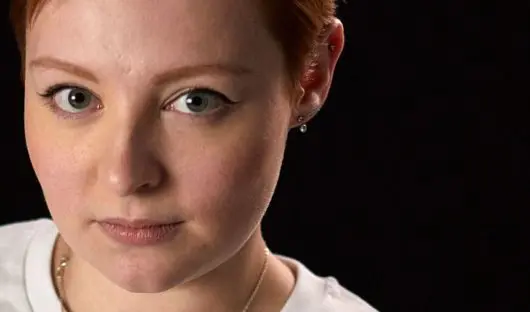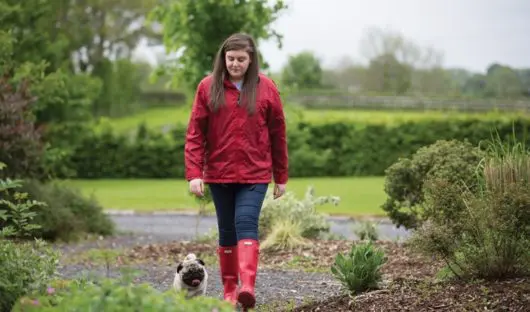Your feelings when you’ve been diagnosed with cancer
Anger, numbness, shock, fear, guilt – you might be feeling all, one or none of these. Cancer can give you more ups and downs than a yo-yo. Whatever you’re feeling right now is normal. But there are two things that are important to know: it’s not your fault and you’re not alone.
Dealing with the diagnosis
One minute you’re getting on with life and the next you have an illness that throws everything into question. It’s natural to be angry. You might feel the situation is unfair. You might feel frightened and worried about the impact it will have on your life and those around you.
Whatever situation you’re in – living independently or with family, and whether you’re in education or work – there are people who can help you deal with the things that are most important to you. Right now, this could be how to talk to the people in your life, accessing benefits if you need to take time off work, support with pausing your studies – or simply dealing with your emotions.
If you need to cry, have a good cry: no-one can be strong all the time and that is ok. Thinking about everything can help your brain to start making sense of what's going on.
Feeling alone
When something this life changing happens to you, it’s normal to feel that no one can really understand what you’re going through. Lots of young people say that a diagnosis can make them feel isolated and alone.
It might be hard to believe but there will be people who get exactly how you’re feeling. Your care team (the group of professionals looking after you) is one, but you’ll also find there is a whole ‘community’ of young people who are connected by a cancer diagnosis. Ask your team about any groups running locally or online. There’s lots of support available from young people organisations and a lot of them aren’t based just around those with a cancer diagnosis, but they offer escapism and a good laugh!
Feeling low
You may feel low or worried about the future and this is completely natural. There are bound to be times through your treatment when you feel down, and days where you’re feeling more resilient. It’s really important to keep checking in with yourself and recognise when you might need some support. If feeling low and tearful has become ‘normal’ and you aren’t bouncing back, there’s a chance you might be depressed.
Time to reach out: Opening up can be tough but it really helps to talk about things, rather than bottling them up. Start by speaking to someone you trust about how you’re feeling. This could be a friend, someone from your care team or one of these organisations.
Your care team will be able to help you in a way that works for you – whether that’s referring you on to a specialist like a psychologist or counsellor, prescribing medication or both. Asking for help is a really positive step to take. Everyone needs help to cope at times, especially with all the things you may be going through.
If it all becomes too much: If you’ve got strong feelings of helplessness or you’re feeling really overwhelmed, pick up the phone and talk to one of these organisations now. You can just say you’re struggling and would like someone to talk to.
You could also ask your Young Lives vs Cancer Social Worker or your Clinical Nurse Specialist for a referral to local counselling.
Tackling big questions
Young people tell us that having cancer can bring up some pretty intense questions that they feel no one can answer. Most young people do get better and things are continuing to improve as dedicated scientists and professionals work out new and better ways to treat cancer. It’s also important to remember that the cancers that affect young people are very different to those affecting older adults.
Everyone’s situation is different so it’s always best to talk about this with your consultant, as they’ll be able to talk you through the next steps and hopefully help to reassure you.
Anger
You might feel angry and frustrated after a diagnosis. It could feel unfair that it’s happened or you might be questioning why it had to happen to you? What’s even harder is that it’s no-one’s fault, so it can be hard to know where to direct the anger.
The anger you feel could come out in different ways. It’s easy to take it out on your friends and family or those around you in hospital. There is no need to feel guilty about being irritable but it’s helpful to find ways of dealing with it.
Redirect it: It’s really helpful to find a way of releasing those emotions. Anything physical will help, whether its as simple as punching a pillow or cranking up your music or going for a walk. If you’re an inpatient you can ask to borrow an exercise bike.
Be mindful: Mindfulness and breathing techniques can really help. You can always just try a couple out, so it feels more normal when you need them. Practise these with a friend or family member so they could help you in the future.
Get professional help: Anger becomes unhealthy when you start causing yourself or others harm. This could be through aggressive behaviour, turning to drink or drugs, or self-harm. That’s when it’s important to get help quickly. Trained professionals can help you to make sense of these feelings and get to a better place. Ask your care team for how to access support.
Fear
Getting told you’ve got cancer can be really frightening and people will often have thoughts about the ‘what ifs,’ even if it’s all going really well. This is normal. Uncertainty can be scary and make you feel really anxious, but there are things you can do to ground yourself and feel more in control again.
Speak to your care team at the hospital: Knowing what to expect can be reassuring. Not all things can be certain but your team will always be happy to talk through things with you and answer any questions as best they can. No question is a silly question and they are there to help you feel more in control.
Talk to others: Fear can make you feel quite isolated, so do try and share your thoughts with someone else. Often, getting your deepest fears ‘out there’ by talking can take some of the power away from them and help you feel less anxious. You can also ask your team for information on local free counselling for people with cancer. This might help you to think about it all and process your feelings.
Guilt
People can feel guilty for all sorts of reasons. It might be that you’ve snapped at someone or said something hurtful when you were stressed or scared. Try not to blame yourself – you’re going through something really tough. Trying to talk to those around you openly about it can really help. And be kind on yourself too – self-compassion is really important.
Resentment
This can be really difficult, but most people will feel it at some point during treatment. Life may be pretty different at the moment and often you can’t do all the things that you normally enjoy and make you happy. It can be so hard seeing your friends off living their lives and doing fun stuff when you’re stuck in hospital or at home feeling exhausted.
Change what you can: Although it’s true that you can’t change the situation you’re in, there are positive things you can do to feel more in control. Message a friend to catch up, see what activities you can do on the ward to feel productive, have lunch with a friend, ask if there’s free massage or aromatherapy at the hospital or a local cancer support centre or go for a walk with someone. Try being honest with friends and tell them if you miss them – maybe you can all come up with some creative ways to stay in touch.
Get creative: Journaling can be a great way to express difficult emotions without worrying about anyone judging you. Writing your thoughts down in a notebook or on your phone can be so helpful. You don’t need to ever read it again if you don’t want to – just getting it out of your head and acknowledging how you’re feeling can be a really positive thing to do. Alternatively you could try anything else creative like writing a poem or blog, learn the ukulele, try painting or drawing how you’re feeling, or take up a new hobby like knitting. Not only will you feel like you’ve done something productive, but it should really help how you’re feeling too. It doesn’t even need to be good (and is often funnier if it isn’t!). It’s often the process of doing it that’s really helpful.
You might also want to read
Contacts for your emotions and mental health
Useful organisations, resources, apps and communities for emotional and mental health support.
Find out more
Body image and cancer treatment
Dealing with changes to your body can knock your confidence. Here's how to boost your self-esteem.
Find out more
Life after cancer: Getting back to “normal” after treatment
Life doesn't just get back to normal after cancer treatment ends. Here's why it can hit hardest emotionally.
Find out more